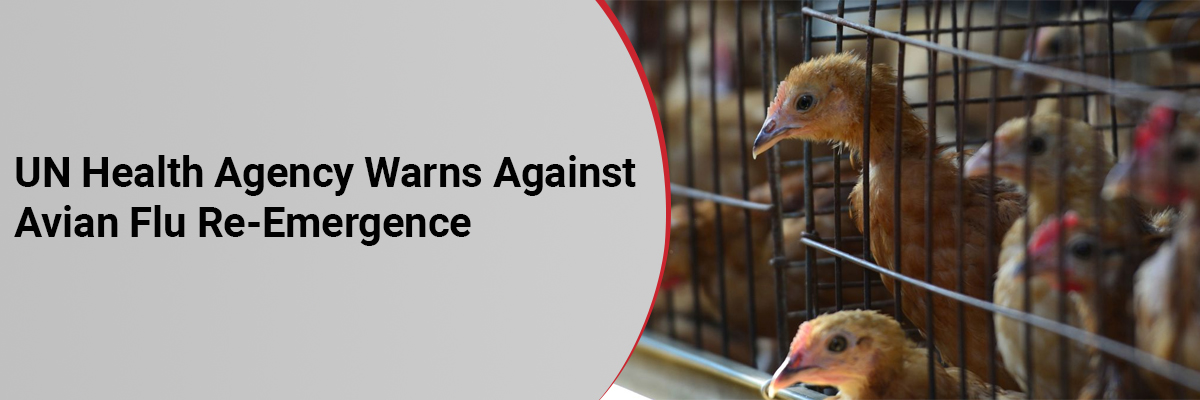
 IJCP Editorial Team
IJCP Editorial Team
UN Health Agency Warns Against Avian Flu Re-Emergence
On
Sunday, the Cambodian Ministry of Health confirmed two cases of H5N1 avian
influenza, one of which resulted in the death of an 11-year-old girl.
Sylvie
Briand, Director for Epidemic and Pandemic Preparedness and Prevention at the
UN health agency, raised his concerns and stated, “The potential for the virus
to spread to humans is a significant cause for alarm, and we are working
closely with Cambodian officials to gain a better understanding of the current
outbreak situation.”
In
response to the recent confirmation of two virus cases, government officials
are working to prevent its further spread and are conducting numerous
investigations to understand how the two patients were exposed to the virus.
Currently a joint effort by medical professionals and experts in animal health
is taking place in Prey Veng province of Cambodia to investigate the case
attempting to identify the source and mode of transmission of the disease.
WHO
recently warned, “As the virus responsible for Avian Influenza (H5N1) is still
present in poultry populations, further cases of human infection are likely to
emerge.” According to the clinical reports, though the infection predominantly
affects animals, it exhibits a 50 percent mortality rate in humans, with most
cases linked to contact with infected live or dead birds or contaminated
environments.
WHO’s
Global Influenza Surveillance and Response System has been set up to monitor
the evolution of viruses and assess the risk of potential pandemics. Health
authorities are urging people to take precautions, such as avoiding contact
with sick or dead birds and seeking medical attention if any symptoms of
infection arise. For those who work with poultry or birds, a seasonal influenza
vaccine is recommended to reduce the risk of infection. To prepare for
potential pandemics, the WHO can recommend the development of new vaccine
viruses as no vaccine is available to protect humans against avian influenza to
date.
However, the World Health
Organization (WHO) has advised against enacting any travel or trade
restrictions in response to the current information about a new virus that has
been identified. Research thus far has indicated that the virus is not easily
transmittable from person to person, making it an unlikely source of widespread
infection.

IJCP Editorial Team
Comprising seasoned professionals and experts from the medical field, the IJCP editorial team is dedicated to delivering timely and accurate content and thriving to provide attention-grabbing information for the readers. What sets them apart are their diverse expertise, spanning academia, research, and clinical practice, and their dedication to upholding the highest standards of quality and integrity. With a wealth of experience and a commitment to excellence, the IJCP editorial team strives to provide valuable perspectives, the latest trends, and in-depth analyses across various medical domains, all in a way that keeps you interested and engaged.












Please login to comment on this article